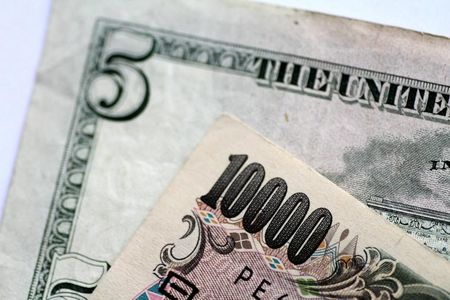Forex
Asia FX muted as dollar holds weekly gains; yen steady with election in focus

Investing.com– Most Asian currencies weakened slightly on Friday as the dollar retained a bulk of its weekly gains on expectations of a slower pace of interest rate cuts by the Federal Reserve.
The Japanese yen steadied near its weakest level in three months as Japan geared up for a tightly contested general election over the weekend, while verbal warnings on potential currency market intervention also kept traders skittish towards the currency.
Most Asian currencies were nursing losses this week as a mix of factors dented risk aversion, although the yen- traditionally a safe haven- was the worst performer this week.
USDJPY steadies near 152 with election, intervention in focus
The yen’s pair steadied near thee-month highs around 152 yen, and was headed for a 1.6% gain this week- its fourth consecutive week of gains.
Sentiment towards Japanese markets was largely on edge before a general election on Sunday, where local polls showed an alliance led by the ruling Liberal Democratic Party could struggle to reach a majority.
This could lead to Prime Minister Shigeru Ishiba facing an uphill battle to enact more economic reforms, while increased political uncertainty is also expected to undermine expectations for more interest rate hikes from the Bank of Japan.
Consumer inflation data from Tokyo showed inflation eased slightly less than expected in October, but fell below the BOJ’s 2% annual target. The data usually heralds a similar reading from nationwide inflation data.
The yen saw some strength after government officials kept up their warnings of potential intervention in the currency market, given recent weakness in the yen.
Dollar set for fourth week of gains
The and steadied in Asian trade, and were headed for a fourth straight week of gains. The greenback was trading up about 0.6% this week.
In addition to bets on smaller rate cuts, the dollar was also buoyed by increasing bets that Donald Trump will win the 2024 presidential elections. Recent polls and online prediction markets put Trump ahead of Democratic nominee Kamala Harris.
Trump’s policies are expected to be inflationary, presenting a higher outlook for U.S. rates in the long term.
Concerns over stickier U.S. interest rates sparked weakness in Asian markets, with most regional currencies headed for weekly declines.
The Chinese yuan’s pair rose 0.1% on Friday and was set to rise 0.3%. A meeting of China’s National People’s Congress, initially slated to take place in late-October, now appeared to be delayed to November.
The Australian dollar’s {{|AUDUSD}} pair fell 0.3% on Friday, while the South Korean won’s pair surged 0.7%.
The Singapore dollar’s pair rose 0.2%, while the Indian rupee’s pair hovered close to record highs.

 Forex3 years ago
Forex3 years agoForex Today: the dollar is gaining strength amid gloomy sentiment at the start of the Fed’s week

 Forex3 years ago
Forex3 years agoUnbiased review of Pocket Option broker

 Forex3 years ago
Forex3 years agoDollar to pound sterling exchange rate today: Pound plummeted to its lowest since 1985

 Forex3 years ago
Forex3 years agoHow is the Australian dollar doing today?

 Cryptocurrency3 years ago
Cryptocurrency3 years agoWhat happened in the crypto market – current events today

 World3 years ago
World3 years agoWhy are modern video games an art form?

 Commodities3 years ago
Commodities3 years agoCopper continues to fall in price on expectations of lower demand in China

 Economy3 years ago
Economy3 years agoCrude oil tankers double in price due to EU anti-Russian sanctions























